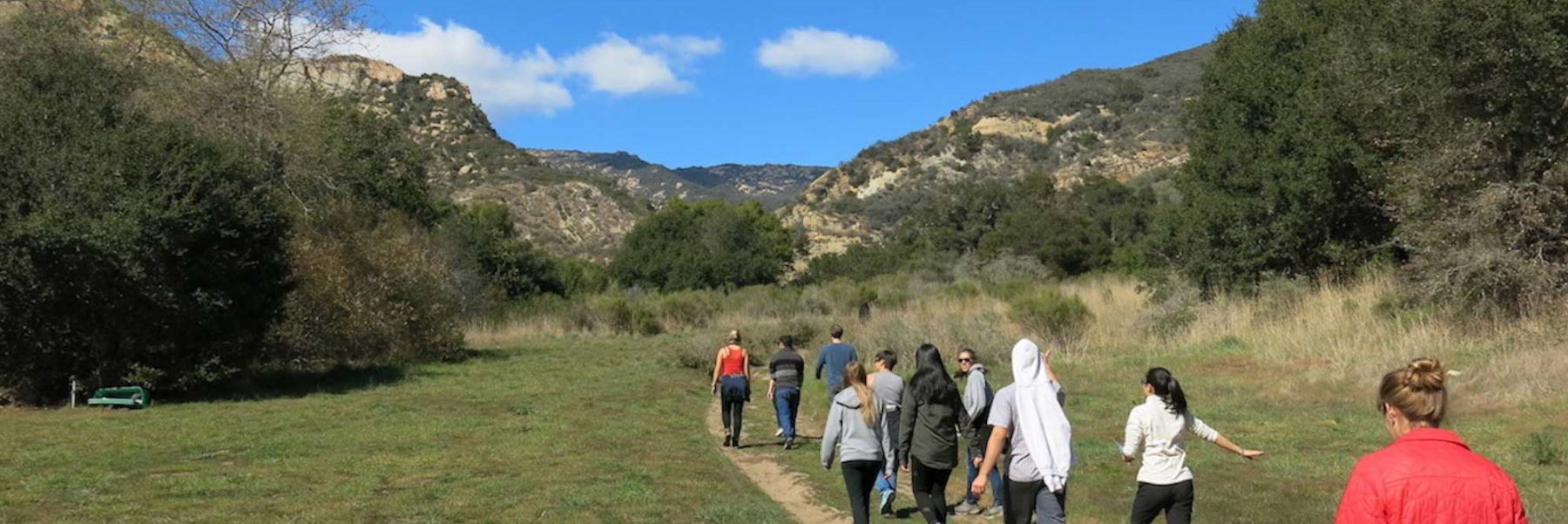Teaching and Outreach
Below are descriptions of the formal courses I teach at UCSB. All are ten-week courses designed for UCSB's quarter system. The EEMB course offerings have laboratory components and can be considered Course-based Undergraduate Research Experiences (CURE). Links to the course syllabi can be found on the right. Please feel free to contact me with questions or to request additional materials from these courses.
Increasing general literacy about microbes and microbial ecology is important to me. Recently, I collaborated with the Smithsonian Ocean Portal to develop their content on Marine Microbes and create several YouTube videos about marine microbes and marine microbiologists. Check out the "Related Links" box on the right to learn more about this project.
- EEMB144: Marine Microbiology / Microbial Oceanography
-
Recent methodological advances have led to an explosion of research in marine microbial ecology. Microbe - microbe interactions and their interactions with their chemical and physical environments govern the cycling of elements and energy in the world's oceans. The field of microbial oceanography has evolved from the merger of marine microbiology, microbial ecology and environmental genomics, proteomics, and transcriptomics. It is a rapidly evolving and dynamic field that is interdisciplinary in nature. Subjects covered in this course will span from traditional microbiology, to microbial biogeochemistry to the use of modern genomic approaches in studying microbial diversity and function in the oceans. We also discuss how methods first developed to study marine microbes have impacted the fields of human health and “microbiome” research.
- EEMB144L: Marine Microbiology Laboratory
-
In this course, we conduct a microbial remineralization experiment to assess how naturally occurring microbial assemblages utilize amended labile dissolved organic matter substrates. Specifically, the class will assess how those substrates impact both microbial growth and potential shifts in microbial community structure. We introduce a number of methods used in microbial ecology, including traditional microbial ecology approaches and modern molecular methods. We will use data generated from the application of these methods to assess microbial growth and substrate utilization as well as to identify the microbial communities and lineages that respond within our experiments. We use R with RStudio for managing data, performing data analysis, and for producing figures.
- EEMB150A / 250A: Microbial Diversity
-
This is a graduate and upper division undergraduate course explorign the diversity of microbial life. The course will focus on the metabolic diversity of bacteria and archaea, with an emphasis on evolution, energetics, and the ecological and geochemical implications of diversity. The required laboratory is an inquirey-based introduction to classical methods of selective enrichment and isolation of diverse microbes from the environment. Offered in Winter.
- INT84BV: Microbial Oceans
-
This is an introductory level Honors seminar designed to introduce students from across different disciplines to marine microbiology. We will draw from different media types, including video, memoir, and popular science literature. Students are involved in weekly discussions and complete a weekly learning journal. Offered periodically in Fall and Winter.
- INT187AF: Ocean Memory
-
Does the ocean have memory? If so, what form does it take? This cross-disciplinary transfer student seminar was taught with English Prof. Melody Jue.
